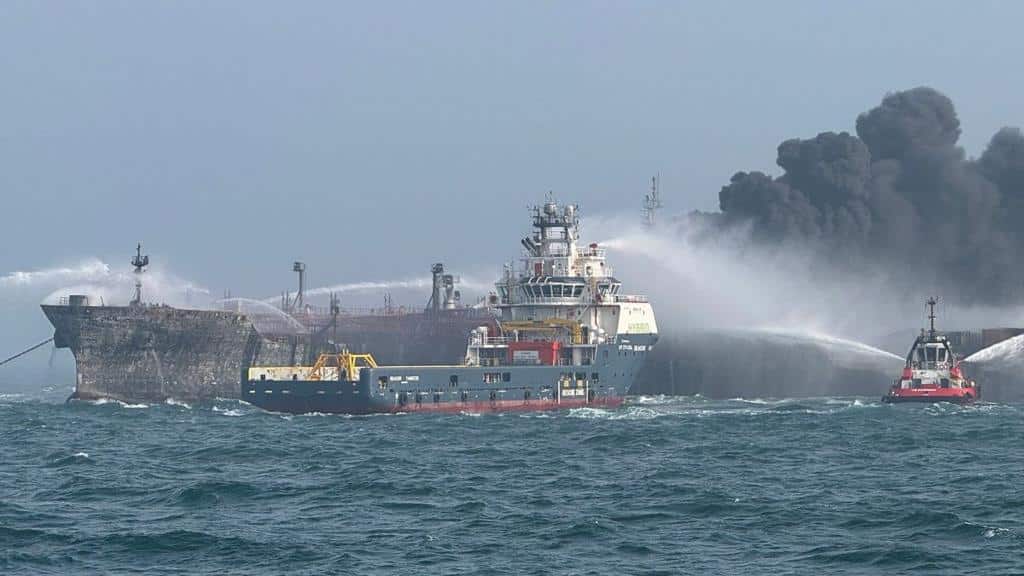Vessel ‘Solong’ powers into US-flagged tanker carrying 18,000 tons of jet fuel
A Portuguese-flagged cargo ship has precipitated what has been described by UK media as “the largest environmental disaster at sea for a decade”.
It is still not clear what caused this catastrophe: the 140-metre Solong, registered in Madeira, but owned by a German shipping company, ploughed into the 183-metre long Stena Immaculate tanker carrying jet fuel for the US Navy, while it was at anchor in the North Sea, 10 miles from Hull.
According to reports from the Stena crew, the cargo ship “suddenly appear out of nowhere”.
The collision sparked a massive conflagration. Both vessels were still burning almost 24-hours after the impact, which happened shortly before 10am yesterday.
Fortunately, almost every crew member escaped without serious injury. There are reports of one crew member of the Solong missing, and intense searches for that individual have now been called off.
But the real question is what next? How much of the Stena Immaculate’s cargo of jet fuel has leaked into the sea? Similar questions hang over the Solong’s cargo, which included 15 containers of sodium cyanide, a chemical that is described as “extremely toxic when it comes into contact with water”.
Adding to the obvious headaches for authorities involved in the containment and clean-up operation – as well as for insurers who will ultimately be paying for it – is the fact that this collision occurred near extremely sensitive areas for marine wildlife, including bird and porpoise colonies.
Charities have stressed that they are on stand-by to treat any injured birds and animals that wash ashore.
As to the causes for this collision, both vessels will have the equivalent of airline ‘black boxes’ which will now have to be recovered, and studied.




















